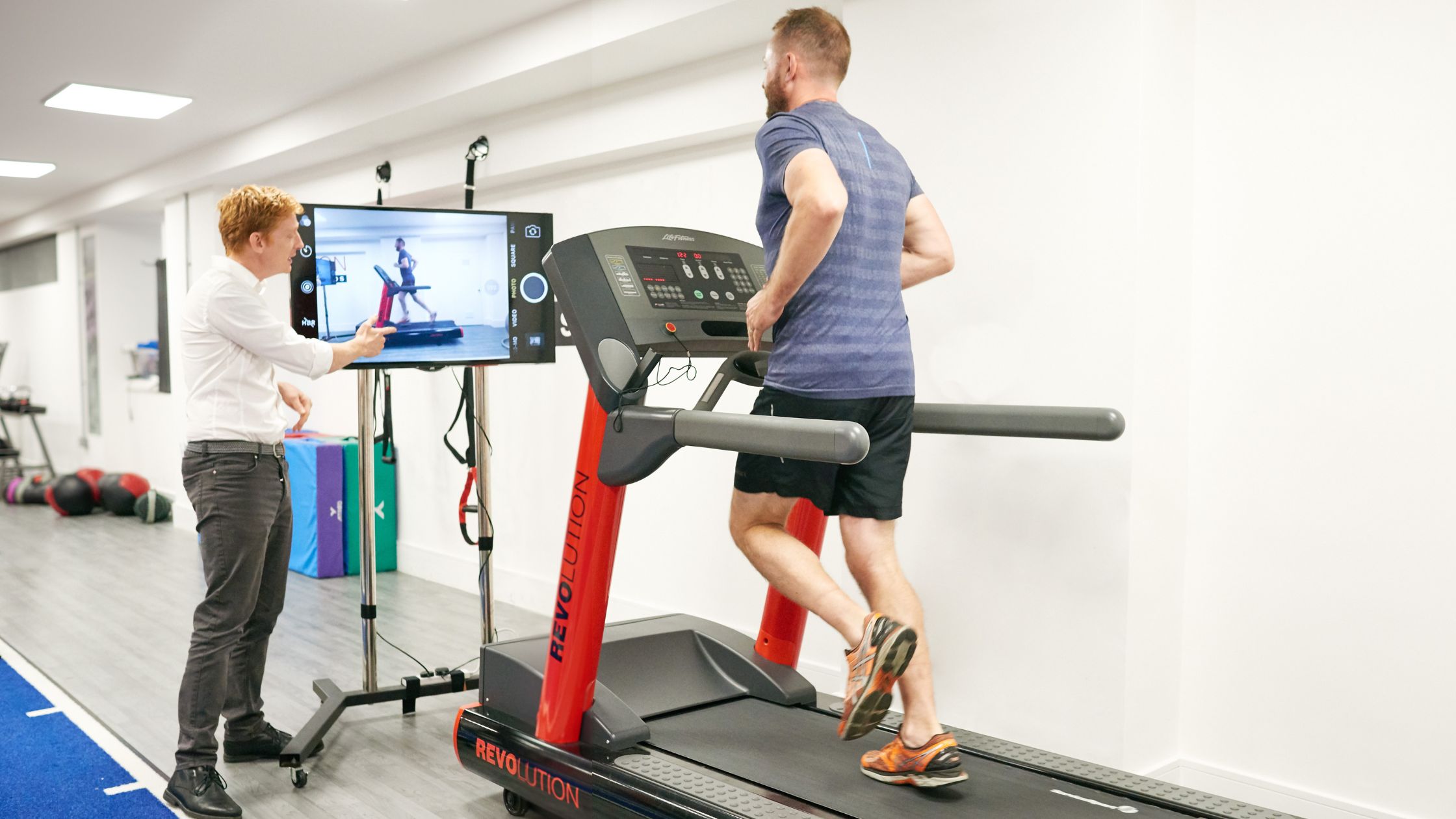Running, with its rhythmic stride and pounding movement, is often viewed as a purely cardio pursuit.
However, there are many different elements of training for long distance running, whether you are just running for fun or training for a marathon. While the benefits of logging miles and increasing “your time on feet” are undeniable, incorporating strength training into your regimen can be a game-changer.
Many clients we see at Complete Physio just grab their trainers and head out for a run, and don’t undertake sufficient strength and conditioning (S&C) training to build solid foundations to support their running. Which is why they end up with us when things start going wrong!
Our aim at Complete physio is to progress all runners not only in speed and personal bests but to improve each runner’s resilience to injuries.
In this blog, we’ll explore why strength training is a vital ally for runners and provide a comprehensive list of 10 strength exercises tailored to enhance your running performance.
Why Strength Training Matters for Runners
Increased Power and Speed
Quality research has demonstrated that distance runners, or participants in endurance sports that require a significant amount of running, appear to gain the most advantage from strength and resistance training, compared to those who only included endurance training in their schedule. Every elite athlete carried out strength training to complement their running.
Strength training increases muscle work efficiency and gives runners a stronger base from which to spring, adding to stamina and power. This added muscle power increases a runner’s ability to apply force to the ground (the ground reaction force). If you acquire the ability to produce more force through the ground, with each stride, you will propel yourself forwards more effectively and efficiently, making you a faster runner who uses less energy.
Muscle Development and Injury Prevention
When we run, our legs absorb a minimum force equal to 2-2.5 times our body weight with each and every stride, putting a tremendous amount of strain on our weight bearing joints. Strong muscles act as shock absorbers, reducing the impact on joints and minimising the risk of common running injuries.
Repetitive running without appropriate strength training, can lead to developing muscle imbalances, which in turn can cause a number of soft tissue and bony injuries. Strength training addresses this by targeting specific muscle groups, promoting balanced development and reducing the risk of overuse injuries such as shin splints, stress fractures and muscle or tendon strains.
Improved Posture and Form
A strong core and body contribute to better posture and running form; you’ll be able to maintain a stable body, minimising unwanted side-to-side movement. This, in turn, optimises energy expenditure and reduces the likelihood of fatigue-related form breakdown. Building strength in your core also helps you to maintain a more upright and strong posture, enabling you to optimise your breathing and helping you to keep your technique even during the last miles of your run.
Top 10 Strength Exercises for Runners
Here are 10 of our recommended strengthening exercises.
It is important to note that if you are getting pain from running, or from doing any of these exercises you should stop and consult one of our expert physiotherapists.
If you would like to book an appointment please call 020 7482 3875 or email info@complete-physio.co.uk.
Squats

How to: Stand with feet shoulder-width apart, lower into a squat position, ensuring knees align with toes. stand back up squeezing your bottom at the top, and repeat.
Progression – Goblet Squat
Repeat 10-12 times x 2 sets
Benefits: Strengthens quads, hamstrings, and glutes.
Lunges

How to: Step forward with one foot, lowering your body until both knees are bent at a 90-degree angle. Stand back up and alternate legs.
Repeat 10-12 times x 2 sets
Benefits: Targets quads, hamstrings, and glutes, enhancing stability.
Deadlifts

How to: Hinge at your hips, lowering a weight toward the ground. Keep your back straight and lift back up. You can use light hand weights or a bar to start with and then progress the weight as your strength improves.
Repeat 10-12 times x 2 sets
Benefits: Strengthens hamstrings, glutes, and lower back.
Calf Raises

How to: Stand and push up onto your toes, then slowly lower back down. You can just use your body weight or hold hand weights.
You can also progress this exercise by doing it on one leg at a time, or over the edge of a step.
Repeat 10-15 times x 2 sets
Benefits: Targets the calves, crucial for push-off power.
Planks

How to: Hold a plank position, ensuring a straight line from head to heels.
Hold this position for 30-60 seconds and repeat twice.
Benefits: Builds core strength, essential for stability during runs.
Single-Leg Bridges

How to: Lie on your back, lift one leg, and push through the other foot to lift your hips. Hold for a few seconds and then lower back down.
Repeat 10-12 times x 2 sets
Benefits: Activates glutes and stabilising muscles.
Box Jumps

How to: Jump onto a sturdy box, landing softly with slightly bent knees.
Repeat 8-10 times x 2 sets
Benefits: Boosts explosive power in the lower body.
Side Planks

How to: Support your body on one forearm or hand and your foot, keeping your body in a straight line.
Hold this pose for 30-60 seconds and then repeat on the other side, times 2 sets.
Benefits: Targets the lateral core muscles.
Russian Twists

How to: Sit on the ground with your legs slightly bent and raised off the ground, lean back a little and then rotate your torso from one side to the other, in a twisting movement.
Repeat 10-12 times on each side x 2 sets
Benefits: Engages the obliques, improving rotational stability.
Leg Raises

How to: Lie on your back, lift both legs toward the ceiling, and lower them without touching the ground. This can also be carried out with one leg at a time and then progressed to double leg raises.
Repeat 10-12 times x 2 sets
Benefits: Strengthens the lower abdominal muscles.
How often should I do these strength exercises?
This depends on your running goals and your current level. If you’ve never done strength training before, start with one 15-20 minute session a week, working through the exercises with just body weight resistance.
As you progress with your strength and running, then two or even three sessions a week would be ideal. These can be bodyweight, or you can also add weight or use gym equipment to make them harder. The most important thing is consistency, so you need to make sure that it works for you, and around your already busy schedule.
How many repetitions should I do?
In terms of reps, for novices, the recommended number of reps would be 8-12 x 2 sets. As you improve and the exercises become easier you can add a third set.
To build strength you need to be working at a level that challenges your muscles, so you will need to also add weights to the exercises to push the muscles to fatigue. With the added weight you may bring the reps down slightly initially, before increasing them again.
Incorporating these strength exercises into your routine can unlock a new level of performance and resilience in your running journey. Remember, consistency is key, and always listen to your body to ensure a safe and effective training experience. Happy running!
Strength and Conditioning at Complete Physio
As well as having an exceptional Physiotherapy team, we also have a specialist Strength and Conditioning Coach, Matt Curley who is available to support you with focused, personalised, strength plans and training advice to supercharge your fitness and recovery.
As a Strength and Conditioning Coach he has a deep understanding of the physical requirements needed to excel in sports performance. He understands the importance of resilience and can help you navigate the demands and intensity of your training, as well as offering specialised, technical, running training.
He is a key part of our multidisciplinary team, and is uniquely positioned to work alongside our clinical teams to enhance your rehab and ensure that you achieve your running goals.
At Complete Physio we treat thousands of runners, from those who just run for fun, to trail runners, marathon runners, elite triathletes, and everyone in between, and are dedicated to getting you back to full running form and fitness!
Don’t let pain hold you back, book now!





